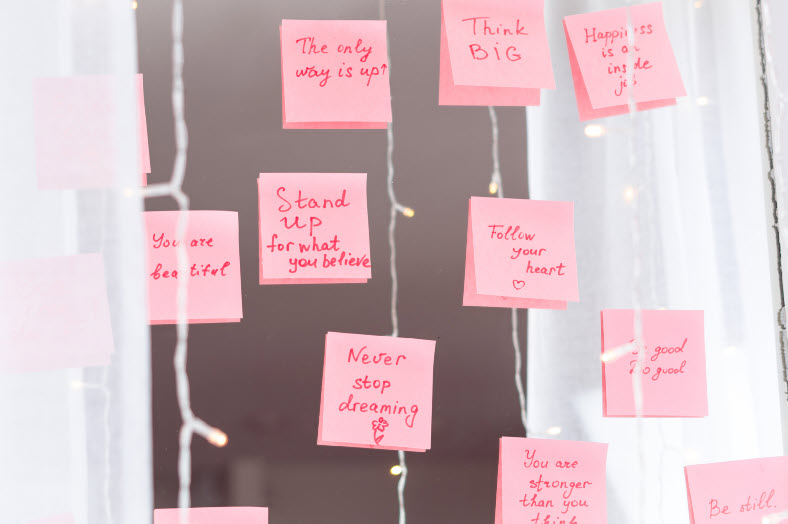
The Concept of Positive Reinforcement
I’ve always been a bit of a goal-setter, driven by a vision of the future. A checklist for getting there.
But for years, I used the same approach to reach my goals—hard deadlines, strict rules, and the promise of “I’ll be happy when…”
It worked, for a while.
But over time, I noticed a pattern: burnout and self-doubt.
My goals often felt like heavy burdens instead of milestones worth celebrating.
Then, one day, a friend told me, “Maybe you should try rewarding yourself for the small wins along the way.”
That concept—positive reinforcement—was eye-opening.
It wasn’t about pushing myself harder but about cheering myself on every step of the journey.
Here, I’ll share how positive reinforcement has transformed my approach to goal-setting, and offer practical ways you can apply it to your own journey.
1. Breaking Down Big Goals into Bite-Sized Wins
Think of your biggest goal as climbing a mountain.
When you look up from the bottom, the summit feels impossibly far.
Positive reinforcement helped me learn that I don’t need to focus solely on the peak. Instead, I can celebrate every small milestone along the way.
When I wanted to write a book, for example, I broke down the process.
Instead of waiting until the book was finished to feel accomplished, I set small milestones: drafting an outline, writing the first chapter, reaching the halfway mark, and so on.
After each of these mini-goals, I’d treat myself to something that felt special. It was a quiet walk in nature or a coffee date with a friend.
Every reward was a reminder that progress—no matter how small—deserves recognition.
2. Creating a “Wins Jar” to Track Your Progress
Positive reinforcement doesn’t have to be grand. Sometimes, the smallest gestures can keep us going.
Inspired by the concept of gratitude jars, I started my own “Wins Jar.”
Every time I achieved something, no matter how small, I’d write it on a slip of paper and put it in the jar.
At first, it was simple things like “stuck to my morning routine” or “finished a tough project at work.” But over time, that jar filled up, and it became a visual reminder of all I’d accomplished.
This simple practice transformed my perception of progress.
On days when I felt stuck or discouraged, I’d pull out a few of those slips. I’d relive moments of pride and achievement.
The Wins Jar is like a bank of positivity that I can draw on whenever my motivation feels low.
Try it—you might be surprised by how powerful a collection of small wins can be.
3. Rewarding Yourself in Meaningful Ways
Positive reinforcement is about rewards. But they need to be meaningful to be effective.
At first, I used material rewards, like buying myself something special. While that was nice, I soon realized that these rewards didn’t always feel personal or fulfilling.
Now, I focus on rewards that nourish my spirit.
For instance, after a week of meeting my goals, I might reward myself with an evening spent on a hobby, like painting or reading.
If I’ve tackled a particularly challenging task, I give myself permission to take a day off. Free from obligations.
Rewards that feel meaningful resonate more deeply, reinforcing not only my progress but also my well-being.
4. Setting Up “Positive Triggers”
A key lesson I’ve learned is that positive reinforcement isn’t just about rewards. It’s also about creating habits that keep me on track.
I use something I call “positive triggers”—small cues that remind me to keep moving forward. Think of them like road signs on a journey, reminding you of your path.
For instance, I have a playlist of uplifting songs that I play when I sit down to work on a big goal.
The music becomes a positive trigger, signaling that it’s time to focus and stay committed.
Positive triggers don’t have to be big gestures. They’re small reminders that shift your mindset and keep you connected to your goals.
They can be anything from a mantra to a scent. Maybe even a particular piece of clothing you wear during goal-focused time.
5. Embracing Self-Compassion and “Reset” Moments
Let’s be real—there will be setbacks.
Sometimes I’ll miss a day, slip up, or feel less motivated than usual.
In those moments, positive reinforcement has taught me the power of self-compassion.
Instead of beating myself up, I use a “reset” moment. I forgive myself and start fresh.
These resets are like pressing the “refresh” button.
I’ll go for a walk, make a cup of tea, or simply take a few deep breaths.
Instead of letting a setback derail my momentum, I remind myself that each moment is a chance to begin again.
Positive reinforcement isn’t about expecting perfection. It’s about staying committed to growth, no matter the bumps along the way.
6. Sharing Wins with Others
Sometimes, the most powerful form of positive reinforcement comes from others.
When I hit a milestone, I love sharing it with friends or family. Their encouragement becomes an external boost that fuels my internal motivation.
I’ve started a small group with a few friends where we share weekly wins and encourage each other.
This community has become a source of accountability and inspiration. When we celebrate each other’s progress, it feels like cheering for my own.
If you don’t have a group like this, consider sharing your goals with a trusted friend.
There’s a unique magic in celebrating achievements together.
7. Reflecting on How Far You’ve Come
Reflection is a form of positive reinforcement I never used to consider.
I was so focused on “what’s next” that I rarely looked back to see how much I’d already achieved.
Now, at the end of each month, I spend a few minutes reflecting on what went well.
I write down a few thoughts about my progress, the obstacles I’ve overcome, and the lessons I’ve learned.
This practice is a gentle reminder that growth doesn’t happen overnight.
It’s a journey made up of countless small steps.
Reflection has become my way of honoring each step and reminding myself that every effort, no matter how small, matters.
Final Thoughts: Making Positive Reinforcement Part of Your Journey
Positive reinforcement has transformed my approach to achieving goals.
Instead of seeing the journey as a long, uphill climb, I now see it as a series of meaningful steps.
Each one worth celebrating.
Break down big goals. Reward small wins. Embrace moments of self-compassion.
I’ve found that this rhythm feels sustainable and fulfilling.
If you’re someone who struggles with staying motivated, try incorporating positive reinforcement into your own life.
Start small: pick one or two practices, like the Wins Jar or a meaningful reward system.
As you integrate these into your routine, you’ll find that motivation becomes less of a struggle. You’ll begin to enjoy the journey.
Remember, achieving goals isn’t just about reaching the finish line.
It’s about growing along the way.
Learn to appreciate every step, and honor the progress that makes each goal worth pursuing.
With positive reinforcement, we can transform our relationship with our goals—from daunting challenges to joyful journeys.

